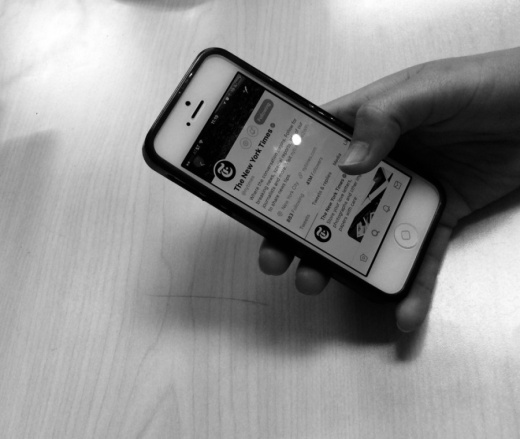With nearly all public gatherings canceled due to the virus and with people mostly stuck indoors, individuals of all ages are seeking entertainment and ways to connect with their communities online.
Mental Health America, which has used a screening program to help identify the help-seeking population, saw a jump in the number of individuals seeking help for at least three out of seven categories, including coronavirus, loneliness or social isolation, and financial problems.
About 32% of those screened chose loneliness or social isolation as one of three main contributors to mental health concerns.
Experts spoke with Community Impact Newspaper about tips to balance media consumption and how to identify whether being connected is having a negative effect.
Biren Patel, managing physician of behavioral health at Kelsey-Seybold, recommends reading the news instead of listening to or watching it in order to help limit the amount and the type of content a person is consuming and, consequently, to ensure their mental health is not compromised by an information overload, which can sometimes be negative or untrue.
“With social media and the news, it’s a 24-hour cycle,” Patel said. “I recommend unplugging. Leave the phone behind, and take breaks for yourself and do something else. If it is a true emergency, someone will usually call or text you.”
News and social media can help people stay connected and alleviate feelings of isolation; however, they can also be used as a coping mechanism to avoid feelings of stress, said Gabriela Morgan, president of Katy-based Valentia Bilingual Therapy Services.
Although many people are encouraging engaging in more and more virtual activities, Morgan said, people do not necessarily have to live their life in front of a screen all day, every day. It is not healthy, she said, and monitoring and limiting the amount of time spent in front of a monitor or cell phone can be useful.
MHA screened 8,052 Texans in May as compared to 1,297 in January and found a 623% increase in total moderate anxiety results from April to May in Harris and Fort Bend counties.
“When we are under stress, the tendency is to try and avoid, and one of the things that we do is do things that don't let us think about the stressor or talk about it or be around someone who reminds us of it,” Morgan said. “Social media is a good way to avoid, and the more we let underlying feelings of stress simmer, [the more] it will have negative effects on mental health.”
Morgan outlined a few questions for people to ask themselves to gauge whether they are spending too much time on social media, including whether individuals are spending less time interacting with people and detrimentally affecting the ability to connect and communicate face to face and whether loved ones are complaining about excessive screen time.
Experts recommend engaging in more hobbies, such as cooking, gardening, organizing, reading books, creating art or learning a new skill, to counter the effects of being consumed by a screen.
Social media can also affect people’s perceptions, especially teenagers who generally struggle with self-esteem, communication skills and effective coping mechanisms.
“When you see people post, you see their happy times,” Morgan said. “Then, we start believing, 'Everyone is happier than me or better than me.' We can live out a story through pictures.”
It is important to keep the mind and body engaged and active as well as practicing any form of deep breathing or meditation to keep the mind from worrying about the past or the future, according to experts.
“Sometimes, even playing a card game where you have to think critically, follow the rules and analyze other's body language and behavior requires you to be focused in the present moment,” Morgan said. “People who spend a lot of time online or watching TV don't get that.”





